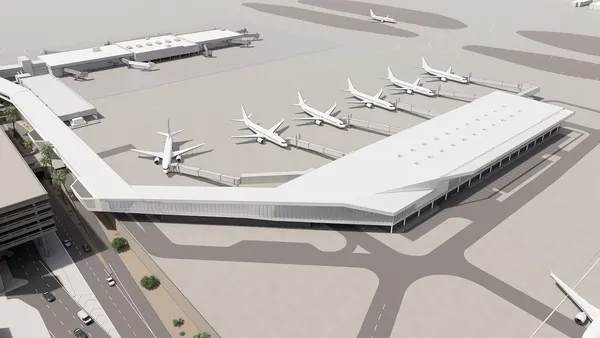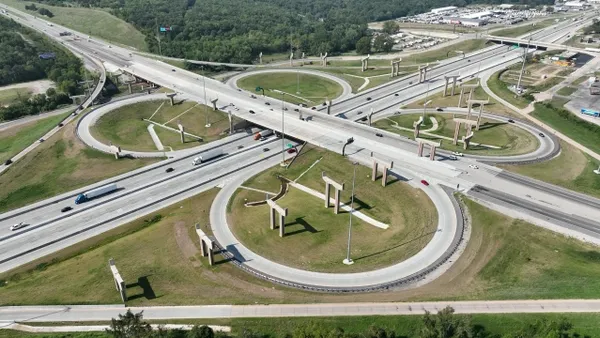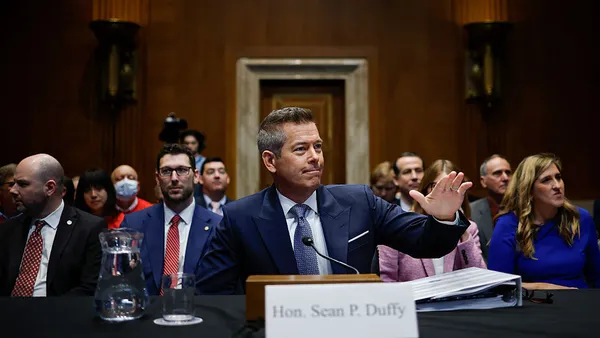Dive Brief:
- Engineering and transportation industry groups have come out in support of a $75 billion Senate bill that would finance a massive repair program for U.S. bridges, according to Transportation Today.
- The Bridge Investment Act, which is so early in the process that it hasn't even been assigned a bill number, would fund a 10-year competitive grant program in the hopes of rounding out state and local infrastructure investment. So far, the legislation has won the support of important industry groups like American Road & Transportation Builders Association (ARTBA), the American Society of Civil Engineers (ASCE), North America’s Building Trades Union (NABTU) and the Associated General Contractors of America (AGC).
- According to the U.S. Department of Transportation, the country has a $123 billion bridge repair backlog, which includes $17 billion of necessary upgrades to rural and local bridges. ARTBA said 23% of U.S. bridges are either functionally obsolete or structurally deficient, and the ASCE gave U.S. bridges a grade of C+ in its latest Infrastructure Report Card.
Dive Insight:
Federal funding would ease the pressure on state DOTs, many of which have been financing bridge repairs themselves.
Just this month, the Rhode Island Department of Transportation awarded a $410 million contract for an Interstate 6-10 Interchange overhaul, a project which includes the replacement of seven structurally deficient bridges.
The Massachusetts Department of Transportation (MassDOT) is also planning a $1 billion replacement of the Interstate 90 Massachusetts Turnpike viaduct, a crumbling piece of infrastructure that costs about $800,000 a year to maintain. Features of the new viaduct would include I-90 exits, additional layover space for rail passengers, a new rail stop and pedestrian and bike access, but MassDOT still hasn't worked out where it will get the money.
And that could be a trickier prospect under a Trump administration. In his budget proposal, introduced earlier last year, he said that state and local governments would have to take more responsibility for financing projects that did not have a national impact.
That perspective was driven home at the end of last year when the Federal Transit Administration informed New York and New Jersey officials that the agency had no plans to fund half of the construction of a new $13 billion Hudson River tunnel, even though the Obama administration had reportedly committed to the project. FTA officials said nine out of 10 tunnel passengers are local, making it a local project.














